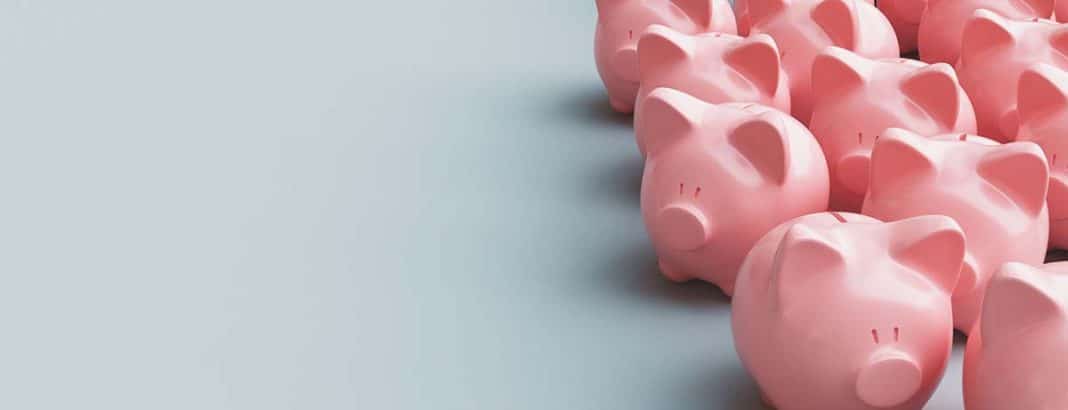A Money market account (MMA), also referred to as money market deposit accounts (MMDA), is a savings account with some checking features. Typically, it comes with a debit card or checks restricted to a certain number of transactions per month. These restrictions make MMA less flexible than the regular checking account. They are vital for calculating tangible net worth.

What Is A Money Market Account?
Traditionally, MMA offers higher interest rates than regular savings accounts. But, the rates are similar these days. Money markets frequently have higher balance requirements or minimum deposits than savings accounts, so you should carefully compare your choices before picking anyone.
MMAs are insured at credit unions by the NCUA (National Credit Union Administration) and at banks by the FDIC ( Federal Deposit Insurance Corp), making sure that you don’t lose your deposits if the financial bodies go out of business.
How Does A Money Market Account Work?
Money market accounts(MMAs) are offered at credit unions, online and traditional banks. They have both pros and cons when compared with other kinds of accounts. Their pros include debit card privileges, check writing, insurance protection, and higher interest rates.
Credit unions and banks generally require that their customers deposit a certain amount of money to open an account and to ensure that they keep their account balance at a certain level. If the account balance falls below the required minimum, many financial institutions impose monthly fee charges.
MMDAs (Money market deposit accounts) provide federal insurance protection, which money market mutual funds(MMMF) do not generally offer.
Insurance
As earlier said, Money market accounts (MMAs) are insured at a bank by the FDIC (Federal Deposit Insurance Corporation), an independent federal government agency. The Federal Deposit Insurance Corp covers certain types of accounts, which the MMAs is up to about $250,000 per depositor at each bank. If there are other insurable accounts (certificate of deposit, savings, and checking) at the same bank, the $250,000 insurance limit will still cover it.
For credit union accounts, the NCUA (National Credit Union Administration) provides insurance coverage of $250,000 per member and $500,000 for joint accounts. Depositors who desire to insure more than $250,000 can easily do so by opening accounts at more than one credit union or bank.
Advantages Of Money Market Accounts
- It provides easy access to funds than traditional savings accounts because of checks and debit cards, which might help an emergency.
- MMA receives favorable rates than those of regular checking accounts.
- It is insured by Federal Deposit Insurance Corp insurance, making it a safe place to save a large amount of money.
Cons Of Money Market Account
- Minimum balance requirement
- Limited transactions
- Some accounts need high minimum balances to avoid extra charges or fees.
How To Choose A Money Market Account
If you’ve decided that the money market account is the best choice for you, then you should look for an MMA with a high-interest rate and no monthly fee. Also, it should have a decent minimum balance. Some institutions require nothing less than $10,000 before you can earn the best rates.
Money Market Accounts Vs. Other Accounts
The MMAs have features that are of more value compared to those of other bank accounts. However, there are crucial differences. Below are how they compare with other savings accounts:
| Type Of Accounts | Interest Rate | Why You Should Open This Account |
| Certificates of Deposit (CDs) | Generally, it is the highest of all bank accounts. | You would want to earn interest on a massive amount of money you won’t need for some months or years. You would want higher interest rates, which is void of the risk of investing in the equity markets. |
| Saving Account | It is competitive with MMA rates | The interest rates are similar to those of MMAs. It usually requires a lower balance requirement and a lower minimum opening deposit than a money market account. |
| Money Market Account | It is competitive with savings account rates | It may pay a better interest rate than the regular saving accounts. It typically offers the ability to make debit card purchases or write checks on the account (up to 6 times a month without penalty). |
Also, money market accounts (MMAs) have some significant differences from other kinds of bank accounts:
- A money market account is not an MMF (money market fund), an investment that can lose value if it falls. The FDIC (Federal Deposit Insurance Corp) or NCUA (National Credit Union Administration) insure the money market accounts. This insurance is up to $250,000 per depositor and $500,000 for joint accounts.
- A money market account is not a checking account. Some money market accounts have debit cards or check-writing features. But, as with the regular savings accounts, they are restricted to only six “convenient” withdrawals or transfers per month, including online transfer, debit card swipe, or check. Opening an interest-bearing checking account is advisable if you prefer making free withdrawals and writing checks.
Alternatives To MMAs
Credit unions and banks offer various types of accounts, with some having features that can make them highly competitive or even superior to money market accounts.
Some of these alternative account includes:
· Passbook Savings Accounts (PSAs)
Unlike MMAs, regular savings accounts generally have no minimum balance requirements or initial deposit. They also pay interest, however, not as much as money market account. Just like MMAs, the NCUA or FDIC insure the passbook savings accounts. Their depositors are both restricted to six transfers every month, with specific exceptions.
· High-Yield Savings Accounts (HSAs)
Many credit unions and banks also provide high-yield savings accounts and, the interest rate may be better than that of MMAs depending on the institution. HSAs are also NCUA or FDIC insured.
· Regular Checking Accounts (RSAs)
Regular checking accounts have a significant advantage over money market accounts, which are unlimited transactions, including wire transfers, ATM withdrawals, checks, ATM withdrawals, and more. RSAs are also NCUA or FDIC insured. Their major disadvantage is that they pay a very low-interest rate.

The Bottom Line
Money market accounts are insured at credit unions by the NCUA (National Credit Union Administration) and at banks by the FDIC (Federal Deposit Insurance Corp), making it a safe and secured platform you can save money.




